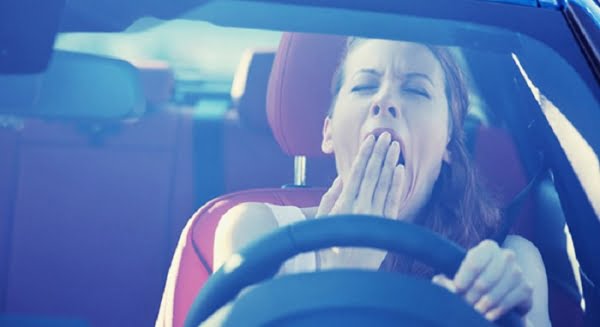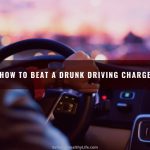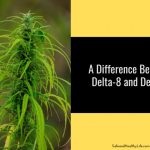Studies from the National Highway Traffic Safety Administration and the National Center for Sleep Disorder Research have shown that drinking and driving are as dangerous as drowsy driving. We all know that drinking and driving are potentially deadly, but 60% of Americans are driving drowsy at least once a year. Unfortunately, drowsy driving can result in a fatal crash just as predictably as drunk driving.

All too Common Situations
Here’s a common situation many drowsy drivers find themselves in far too frequently. The weather is getting warmer, the weekend is coming up, and you decide to have a long weekend vacationing with some friends. All of you are staying up late enjoying the good ole days and none of you want it to stop, but it’s late Sunday night and you need to head on home because you have work in the morning. You’re driving for a good 30 minutes and you start feeling your eyelids growing heavy but you say, “I’m only another 15 minutes from home so I’ll just ‘tough it out.’”
“Toughing it out” is the most common mistake people make to find themselves in these types of situations. Regrettably, this type of situation is playing out all over the country as people push more and more into their very busy lives. Many make it home safe and sound with a little loud music to “keep you awake.” But when you find yourself in this situation again you may want to re-think your strategy and head home a little sooner, or at least pull off to the side for a short nap. Otherwise, you’ll end up needing a defense attorney to explain why you fell asleep and hit another car on the road.
Drowsy Driving Equivalent of .01 Blood Alcohol Content
It is common knowledge that driving while intoxicated is deadly thanks to government efforts, nonprofits, and safety-first marketing campaigns. But while we are so focused on drunk driving, we miss out on the sobering truth that drowsy driving has been the main culprit in over 1.2 million crashes a year. Unfortunately, those crashes kill on average 2 or more people a day, or about 8,000 deaths every year.
Drowsy driving research has shown that when someone is awake for 17 hours or more, it causes significant cognitive impairment. Just think back to the times you’ve been at home, fighting your body to stay awake for another 20-30 minutes to finish a show on TV. When your body is ready to “shut down” for the night it is very difficult to mentally convince yourself to stay awake.
At that point of exhaustion, your body is operating at the equivalent of a blood alcohol content of .05 percent. If you stay up for just another few more hours around the 19-hour mark, your body is operating at the equivalent of a .01 blood alcohol content. At this point, you are beyond legally drunk, and if you get behind the wheel of your car, you won’t just be driving drowsy, you’ll be putting your life at risk.
Drowsy Driving Education
Large players in the automotive industry like Toyota and Uber have even started teaming up to educate people on the dangerous practice of drowsy driving. They believe it’s an issue of saving lives, and Uber even created a program called Uber for Business. Employers can now offer their employees a ride home after a late-night business party. Many businesses have been doing this if they serve alcoholic beverages, but Uber is now educating these businesses that they should do it for late-night meetings in which their employees will be getting behind the wheel drowsy.
College students who are at risk of drowsy driving after an all-night study session will also be the target of a focused educational campaign on drowsy driving. Over the next few months, Arianna Huffington of the Huffington Post will be chatting with students about drowsy driving and its dangers across various college campuses in Denver, Nashville, Chicago, las Vegas, the Bay Area, and more. While Arianna is in town she will also team up with Uber to give sleep tutorials to a few Uber passengers lucky enough to ride with her. Toyota will also be helping college students avoid drowsy driving by offering thousands of free rides late into the night.
Source:
http://www.ncbi.nlm.nih.gov/pmc/articles/PMC1739867/
https://newsroom.uber.com/a-wake-up-call-to-end-drowsy-driving/




![[Infographic] The Surprising Connection Between Gut Health And Your Hair Connection Between Gut Health And Your Hair](https://www.safeandhealthylife.com/wp-content/uploads/2023/10/Connection-Between-Gut-Health-And-Your-Hair-150x150.webp)